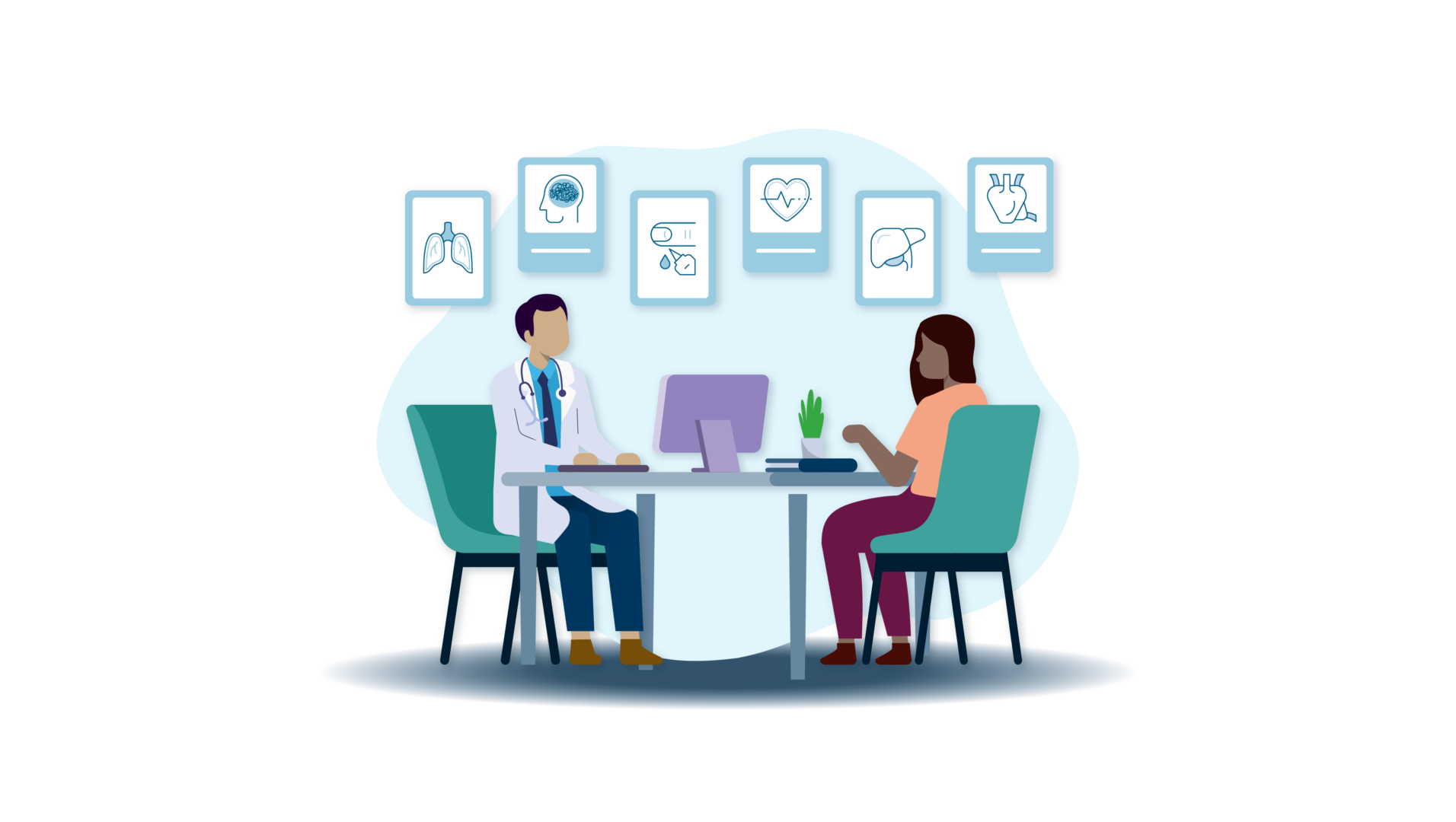Get care for chronic health conditions.
What is a Chronic Condition?
A chronic condition is a health issue that lasts 1 year or more. They need ongoing medical help and may limit you from doing daily activities. Chronic conditions can often be controlled. Your care team can help you have a healthy life with your chronic health condition.
Work with Your Care Team to Stay Healthy
Your care team is here to help you keep the condition under control. They can give you tips and support so you can stay healthy. Your care team includes your Primary Care Provider (PCP). Your PCP is your main doctor, nurse practitioner, or physician assistant. Your care team might have other people, like a heart or kidney doctor, or someone who helps you learn about healthy foods. Your care team can help you take healthy steps, like being more active and quitting smoking.
$50 Gift card
You can get a $50 gift card if you are eligible for the Chronic Conditions* incentive from SFHP. Learn more »
*Only for members with asthma, diabetes, or high blood pressure (hypertension).
Common chronic health conditions:
Asthma
Asthma is a condition that affects the airways that lead into your lungs. It can make it hard for you to breathe. Asthma can also make you cough a lot. Some people with asthma only have symptoms once in a while. Other people have symptoms every day. While asthma can’t be cured, you can work with your Primary Care Provider to control your asthma.
Source: Take Charge of Your Asthma
Depression
Depression is more than just feeling down or having a bad day. When a sad mood lasts for a long time and affects your normal, everyday actions, you may be depressed. You can get many helpful treatments for depression. Treatment can help reduce symptoms and shorten how long the depression lasts. Treatment can look like getting therapy and/or taking medicine. Your PCP or a mental health professional can help you decide what will help you the most.
Source: Mental Health Conditions: Depression and Anxiety (CDC)
Diabetes
Diabetes affects how your body turns food into energy. With diabetes, your body either does not make enough insulin or can’t use it as well as it should. The best way to take care of yourself when you have diabetes is to work with your health care team to keep your blood sugar, blood pressure, and cholesterol levels in a healthy range. You can do this through eating healthy foods, losing weight, staying active, and taking medicine as prescribed.
Sources: Diabetes Basics (CDC), Take Charge of Your Diabetes
Heart Disease
The term “heart disease” refers to many types of heart conditions. In the United States, the most common type of heart disease is coronary artery disease (CAD). CAD can lead to heart attack. You can lower your risk for heart disease by choosing healthy foods and drinks, keeping a healthy weight, staying active, and not smoking. In some cases, you can lower your risk with medicine.
Source: About Heart Disease (CDC)
Hepatitis C
Hepatitis C is a liver infection caused by the hepatitis C virus (HCV). Hepatitis C can range from a mild illness lasting a few weeks to a serious, long-term illness. Chronic hepatitis C can be a lifelong infection if it is not treated. Chronic hepatitis C can cause serious health problems, such as liver damage, cirrhosis (scarring of the liver), liver cancer, and even death. Getting tested for hepatitis C is important, because treatments can cure most people with hepatitis C in 8 to 12 weeks.
Sources: Hepatitis C Basics (CDC), Hepatitis C (CDC)
High Blood Pressure
High blood pressure, also called hypertension, is blood pressure that stays higher than normal. A normal blood pressure level is less than 120/80 mmHg. The best way to know if you have high blood pressure is to get your blood pressure checked. Most of the time there are no clear symptoms of high blood pressure. Having high blood pressure strains the heart and arteries more. Over time, this will harm your organs. High blood pressure can increase your risk for heart disease and stroke. Check your blood pressure often to help you stay healthy and get help from your care team when you need it.
Sources: High Blood Pressure (Hypertension)
You and your doctor can work on a plan that works for you and your specific health condition. Your plan will help you keep track of your health, manage your symptoms, and know when to call your PCP or get emergency help.
If you qualify for Medi-Cal, contact our enrollment team to get the care you need. If you are an SFHP Member and have one of these chronic conditions, please contact SFHP Customer Service at 1(415) 547-7800.
